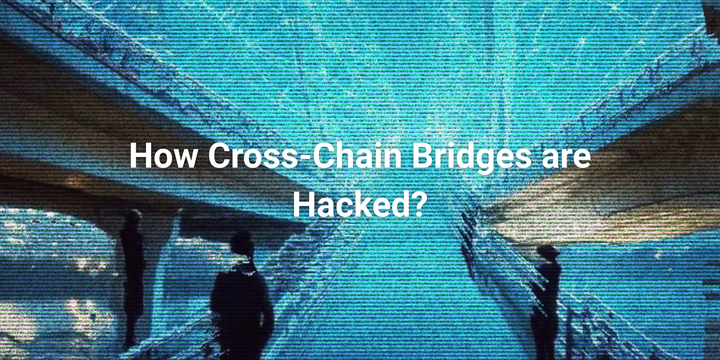The Ultimate Guide to Securing Your Solana Programs: Common Vulnerabilities and Fixes

Source: A Hitchhiker's Guide to Solana Program Security | Helius
Solana program security extends beyond just stopping hackers from stealing funds. It ensures the program behaves correctly, satisfies project requirements, and meets user expectations. Proper security boosts dApp performance, scalability, and interoperability.
This guide dives into common security pitfalls in Solana development, highlighting attack vectors unique to Solana’s programming model and offering practical mitigation strategies.
Understanding Solana's Programming Model & Risks
- Solana separates code (programs) from data (accounts), making programs stateless, working on referenced accounts passed at runtime.
- Transactions indicate which program to invoke, relevant accounts, and instructions.
- Attackers control which accounts are passed into a program, so validating those accounts-ownership, type, signer status-is critical.
- Solana’s design limits reentrancy attacks via strict runtime rules and capped CPI call depth.
Common Attack Vectors and How to Defend
- Logic Bugs: Flaws causing unauthorized access or asset loss; enforce logic matches specs precisely.
- Data Validation Flaws: Always check inputs and account data to prevent malicious manipulation.
- Rust-Specific Issues: Avoid pitfalls in unsafe code, concurrency, and panics by rigorous code practices.
- Access Control Vulnerabilities: Verify owner and signer permissions accurately.
- Arithmetic Errors: Prevent integer overflow/underflow with checked math and avoid precision loss with fixed-point arithmetic and rounding down.
- Cross-Program Invocation (CPI) Issues: Confirm called program identities to prevent arbitrary or malicious CPI calls.
Program Derived Address (PDA) Misuse: Use canonical bumps via find_program_address don’t trust user-supplied bumps.
Notable Vulnerabilities & Solutions
1. Account Data Matching
Failing to verify that an account's data (like admin keys) matches expectations lets attackers substitute malicious accounts.
2. Unsafe Reallocation (Anchor’s `realloc`)
- Mitigation: Compare account keys explicitly or use Anchor’s
has_oneandconstraintattributes to enforce checks declaratively.
Changing account data size improperly can leak stale data or waste compute units.
3. Stale Account Data Post-CPI
- Mitigation: Use
zero_init = truewhen increasing size after a decrease within the same transaction; prefer address lookup tables (ALTs) for dynamic account references.
Accounts deserialized before a CPI call aren’t automatically refreshed afterward, causing logic to operate on outdated data.
4. Arbitrary CPI Calls
- Mitigation: Explicitly call Anchor’s
.reload()on accounts after CPI to reflect current on-chain state.
Invoking programs without verifying the target program identity enables execution of attacker-controlled code.
5. Immutable Authorities
- Mitigation: Validate the callee program’s ID matches the trusted expected program before invoking.
Static authorities without mechanisms for transfer pose risks if keys are lost or compromised.
6. Bump Seed Canonicalization
- Mitigation: Implement a two-step authority transfer: current authority nominates a pending new authority who must accept the transfer explicitly.
Using non-canonical bump seeds for PDAs can cause multiple PDAs for one entity and security holes.
7. Improper Account Closure
- Mitigation: Always use
Pubkey::find_program_addressto get and use the canonical bump seed.
Simply transferring lamports out does not securely close an account, leaving stale data accessible.
8. Duplicate Mutable Accounts
- Mitigation: Zero out data, mark accounts as closed with a discriminator, and implement a
force_defundfunction to prevent account limbo.
Passing the same mutable account twice lets attackers cause unintended double modifications.
9. Frontrunning & Price Manipulation
- Mitigation: Add explicit checks or Anchor constraints asserting account keys differ.
Without expected value checks, a malicious actor can manipulate state between transactions (front-running), e.g., changing product prices.
10. Missing Ownership Checks
- Mitigation: Include expected price or state checks on transaction inputs to reject unexpected changes.
Trusting accounts without verifying their owner allows attackers to supply crafted accounts for unauthorized actions.
11. Unsigned Privileged Operations
- Mitigation: Always confirm account owners match expected programs; Anchor’s
Account<'info, T>handles this automatically.
Failing to verify whether an account signed the transaction allows unauthorized execution of privileged instructions.
12. Integer Overflows and Casting Risks
- Mitigation: Check the
is_signerflag of the involved accounts before proceeding; Anchor abstracts this validation.
Rust release mode disables overflow checks; silent overflows/underflows can result in incorrect logic.
13. PDA Sharing & Seed Collisions
- Mitigation: Enable compiler overflow checks or use Rust’s
checked_arithmetic methods; safely cast integers withtry_frommethods.
Reusing PDAs across different functions or insufficient unique seeds risks unauthorized access or data collisions.
14. Unvalidated ctx.remaining_accounts
- Mitigation: Derive distinct PDAs with unique, descriptive seeds per functionality and verify no collisions occur.
Extra accounts passed via remaining_accounts bypass strict validation, risking unauthorized access or manipulation.
15. Unsafe Rust & Panics
- Mitigation: Manually validate these accounts’ ownership, authenticity, and data integrity within the handler.
Using unsafe blocks or letting the program panic can cause undefined behavior or leak sensitive information.
- Mitigation: Minimize
unsafe, document and audit its use, handle errors gracefully usingResultandOptiontypes, and validate inputs carefully.
Summary
Mastering Solana security requires understanding both general best practices and the platform’s nuances. Use strong account validation, sound Rust practices, precise authority management, and cautious CPI usage. Continuous testing, audits, and proactive vulnerability handling build reliable programs that inspire user trust.
Stay vigilant, verify every input, and embrace the security mindset to safeguard your Solana dApps effectively.


